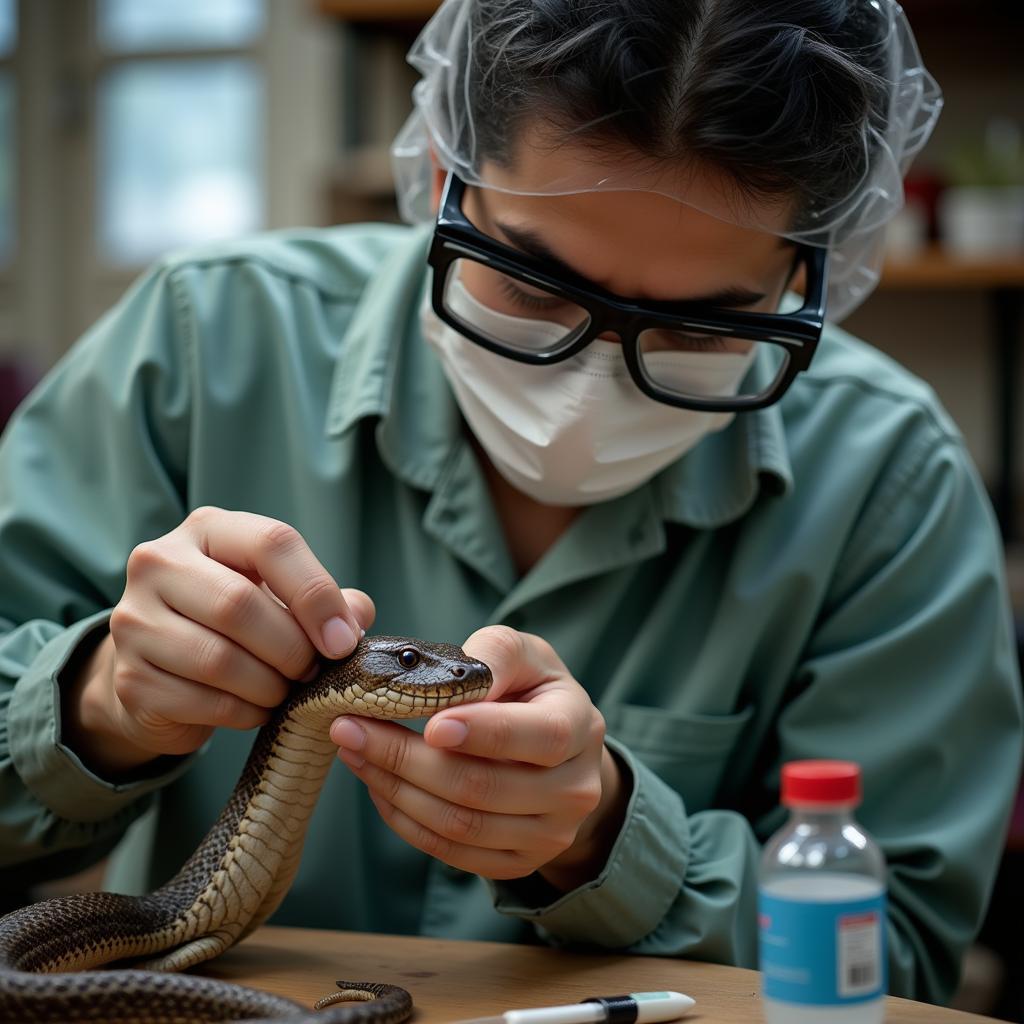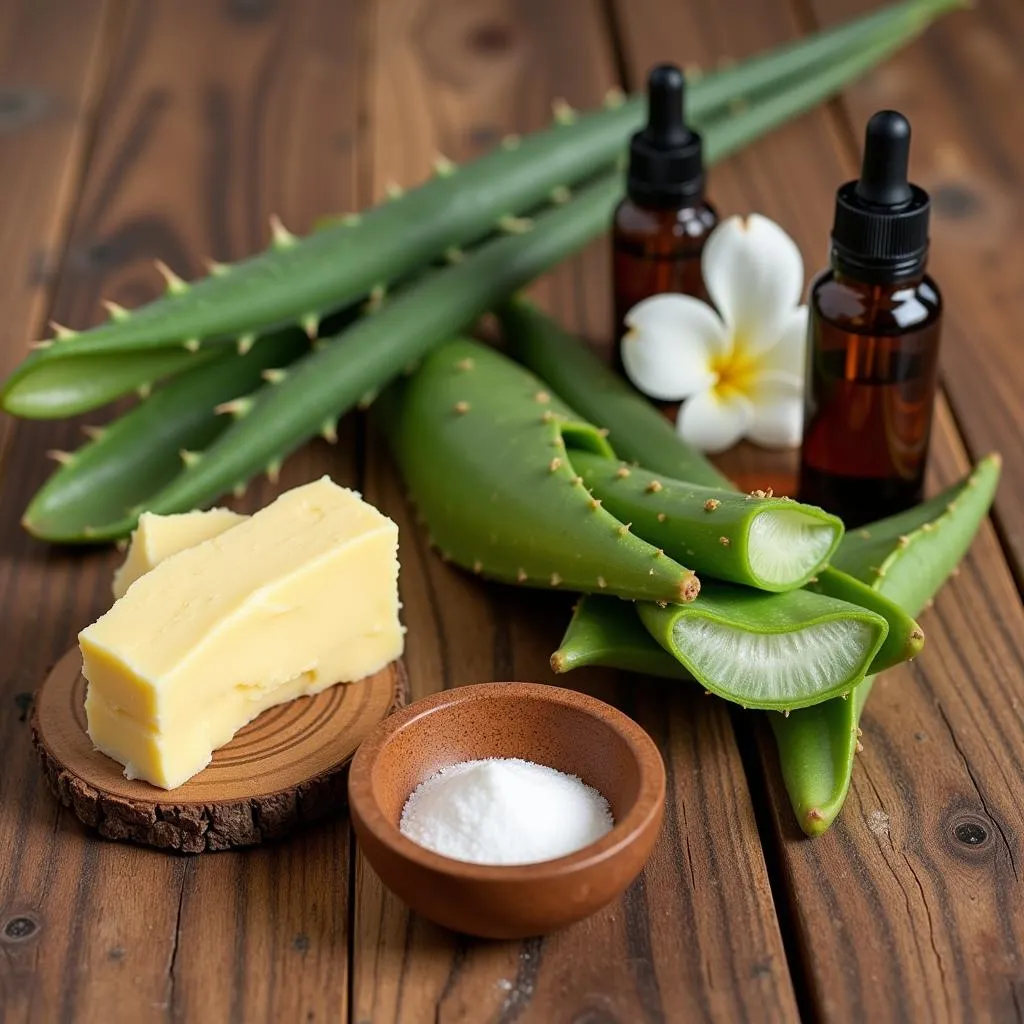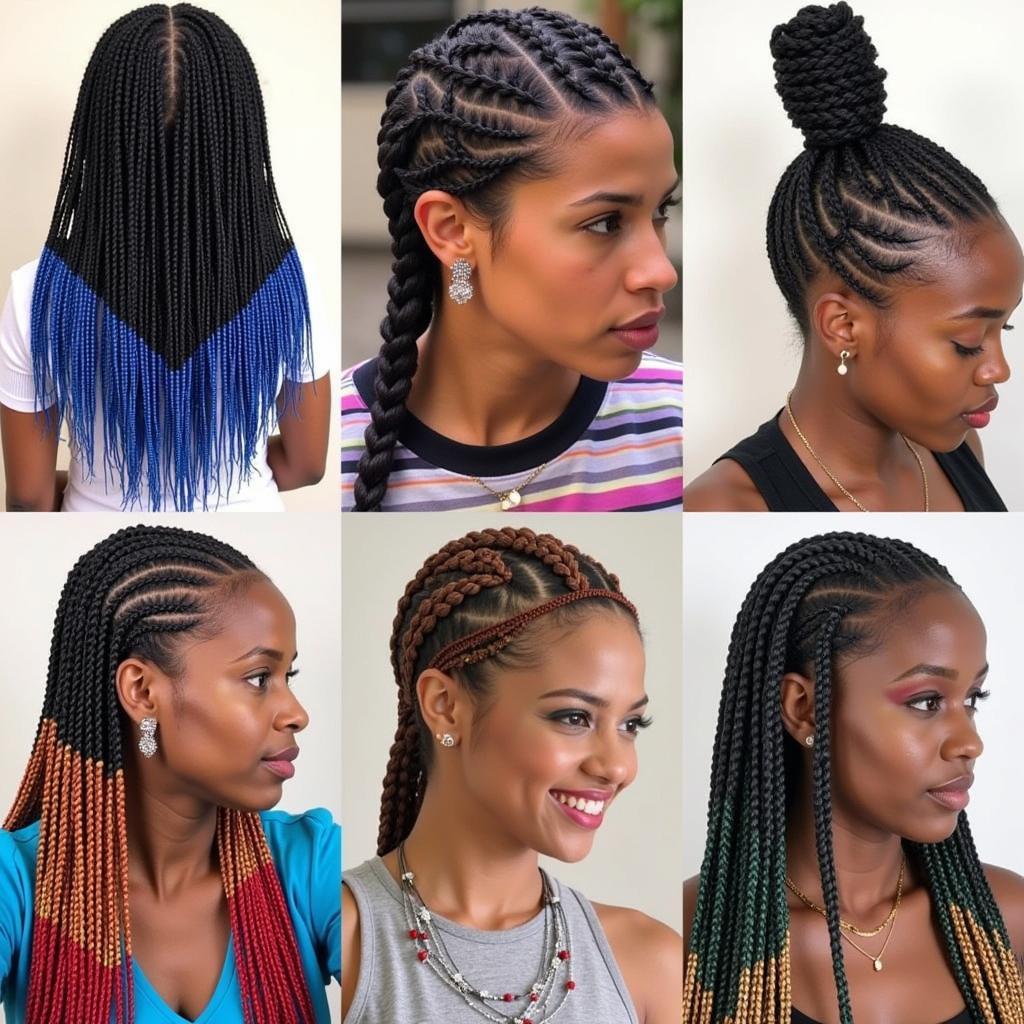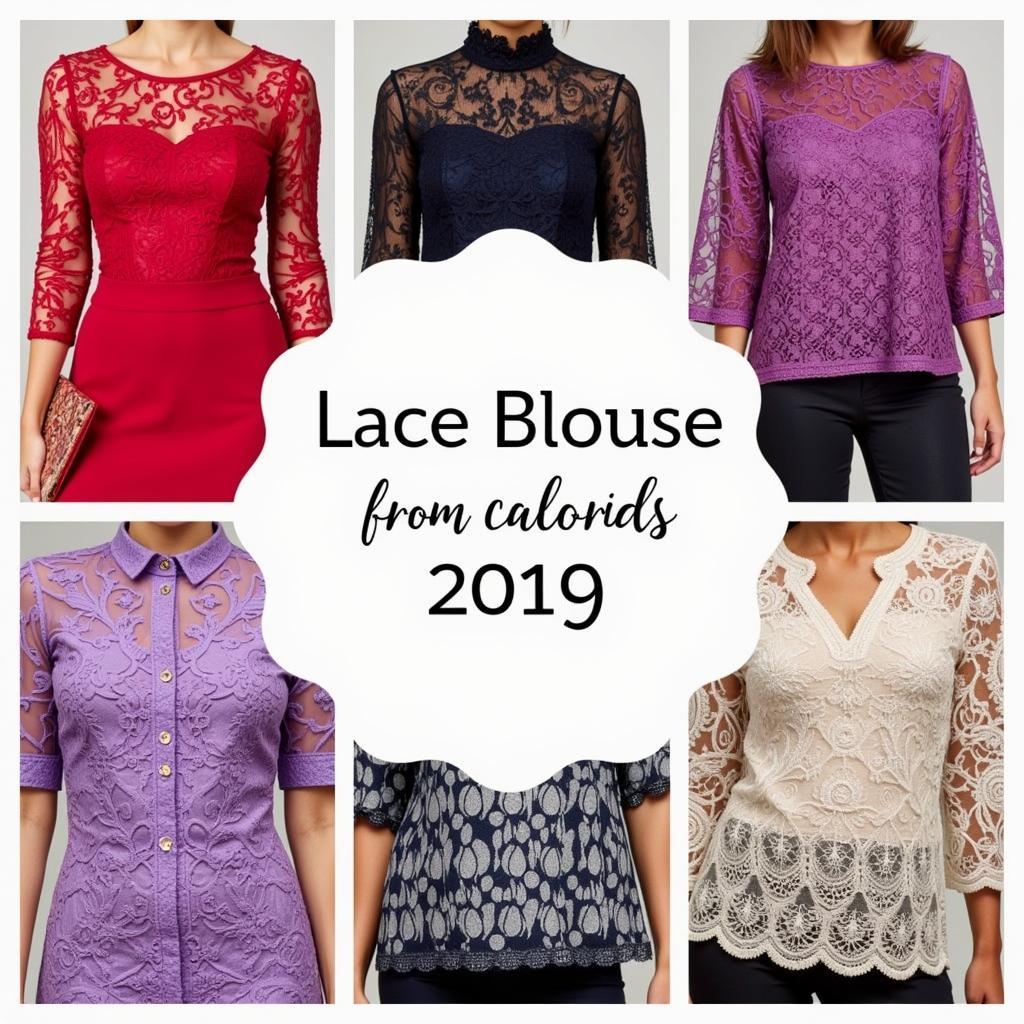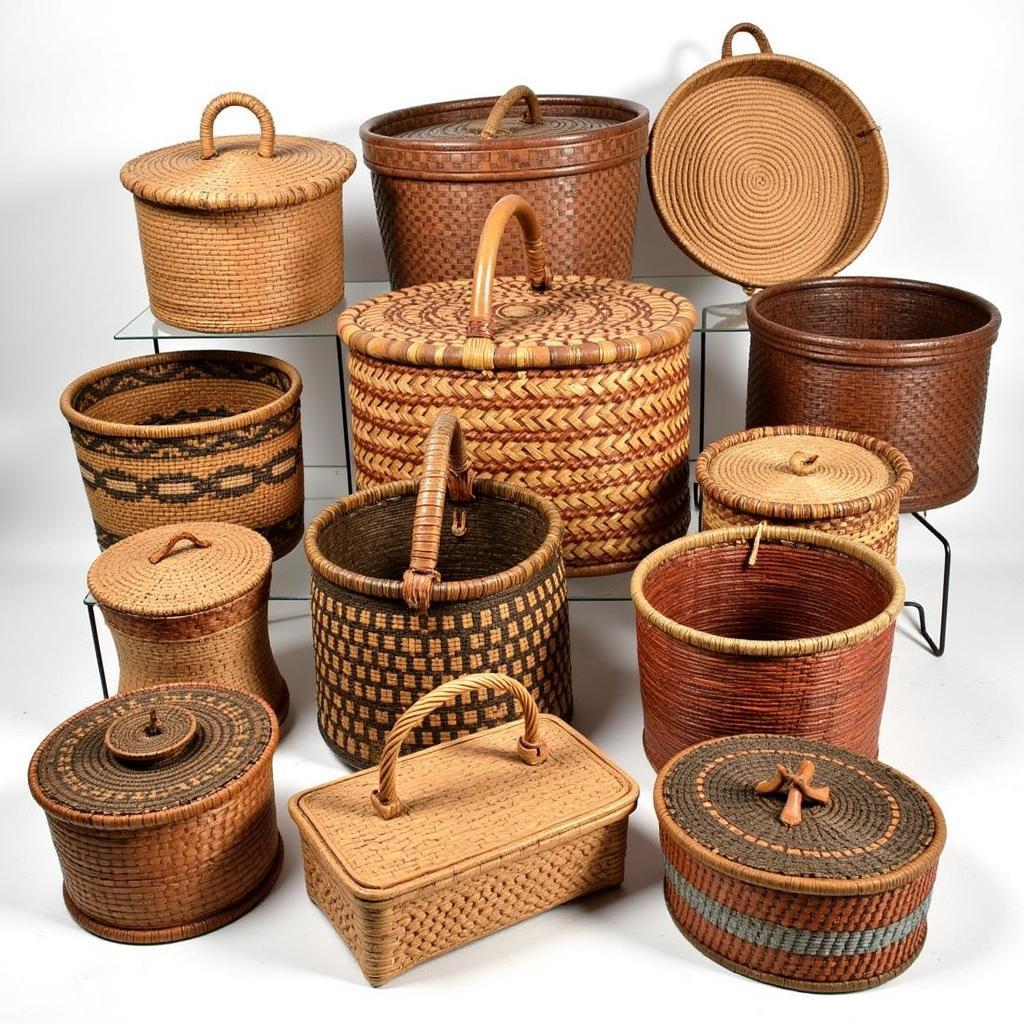The Enduring Symbolism of the African Elephant Figurine
African Elephant Figurines are more than just decorative objects; they are tangible representations of a rich cultural heritage and a deep connection to the natural world. From the intricate carvings of West Africa to the sleek lines of Maasai beadwork, these figurines offer a glimpse into the diverse artistic traditions of the African continent while embodying the majesty and symbolism of the African elephant.
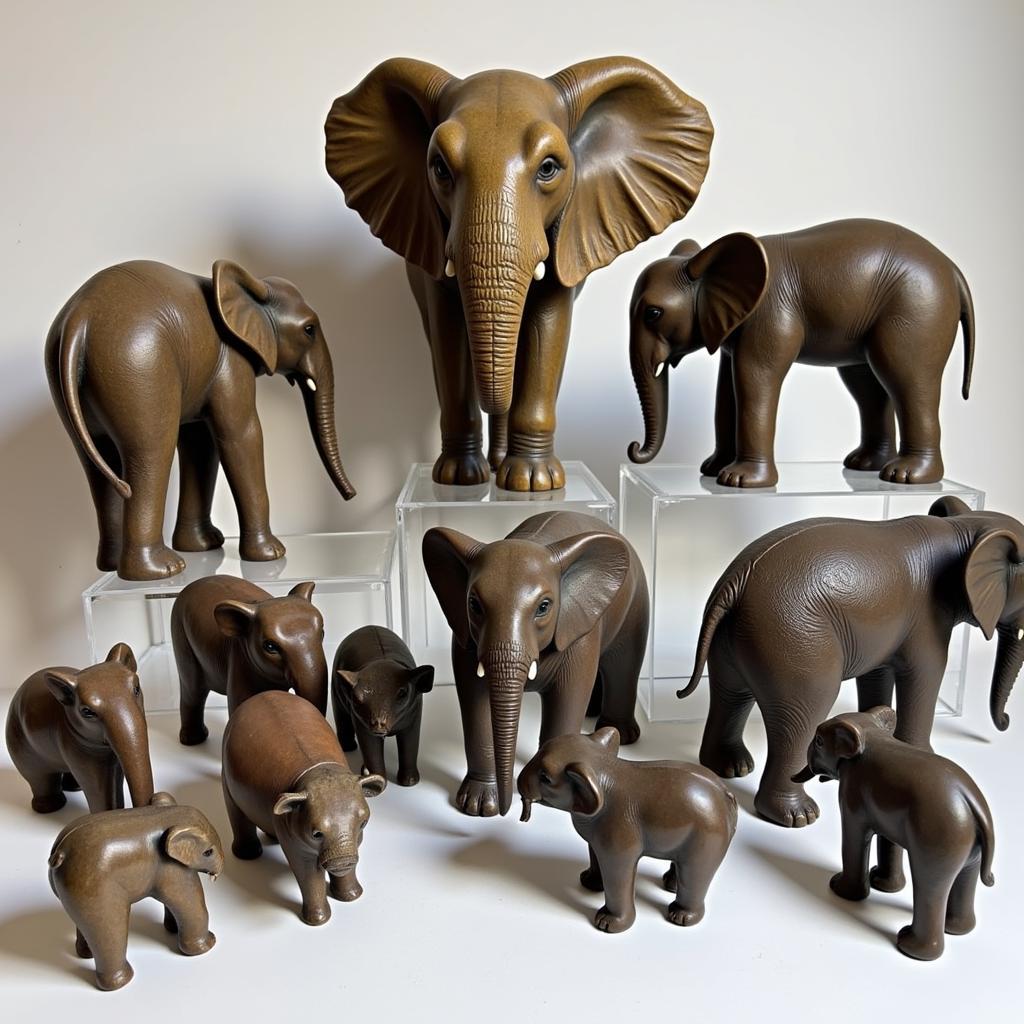 A Diverse Collection of African Elephant Figurines
A Diverse Collection of African Elephant Figurines
The Elephant in African Culture: Reverence and Significance
Across Africa, the elephant holds a prominent place in mythology, folklore, and belief systems. Often associated with strength, wisdom, and longevity, the elephant is revered as a totem animal, a protector spirit, and a symbol of good fortune. In many cultures, elephants are believed to connect the physical and spiritual realms, acting as guardians and guides. This deep respect for elephants is reflected in the artistry and craftsmanship of the figurines.
For instance, the Ashanti people of Ghana believe elephants embody the strength and wisdom of their ancestors. Their intricate, hand-carved wooden elephant figurines, often used in traditional ceremonies, are a testament to this belief. Similarly, the Maasai of Kenya and Tanzania revere the elephant for its size and power, and their beaded elephant figurines are a vibrant expression of this admiration.
Materials and Craftsmanship: A Tapestry of Techniques
African elephant figurines are crafted from a diverse array of materials, reflecting the natural resources and artistic skills prevalent in different regions. Wood carving, perhaps the most widespread technique, results in striking figurines ranging from minimalist forms to highly detailed sculptures.
Other materials commonly used include:
- Bronze and Brass: In West Africa, particularly in countries like Benin and Nigeria, the lost-wax casting technique is used to create exquisite bronze and brass elephant figurines known for their durability and intricate details.
- Soapstone: In Zimbabwe and Kenya, soapstone, prized for its soft texture and beautiful hues, is sculpted into elegant elephant figurines, often polished to a smooth finish.
- Beadwork: The Maasai people are renowned for their intricate beadwork, and their elephant figurines, meticulously adorned with colorful beads, are vibrant expressions of their cultural heritage.
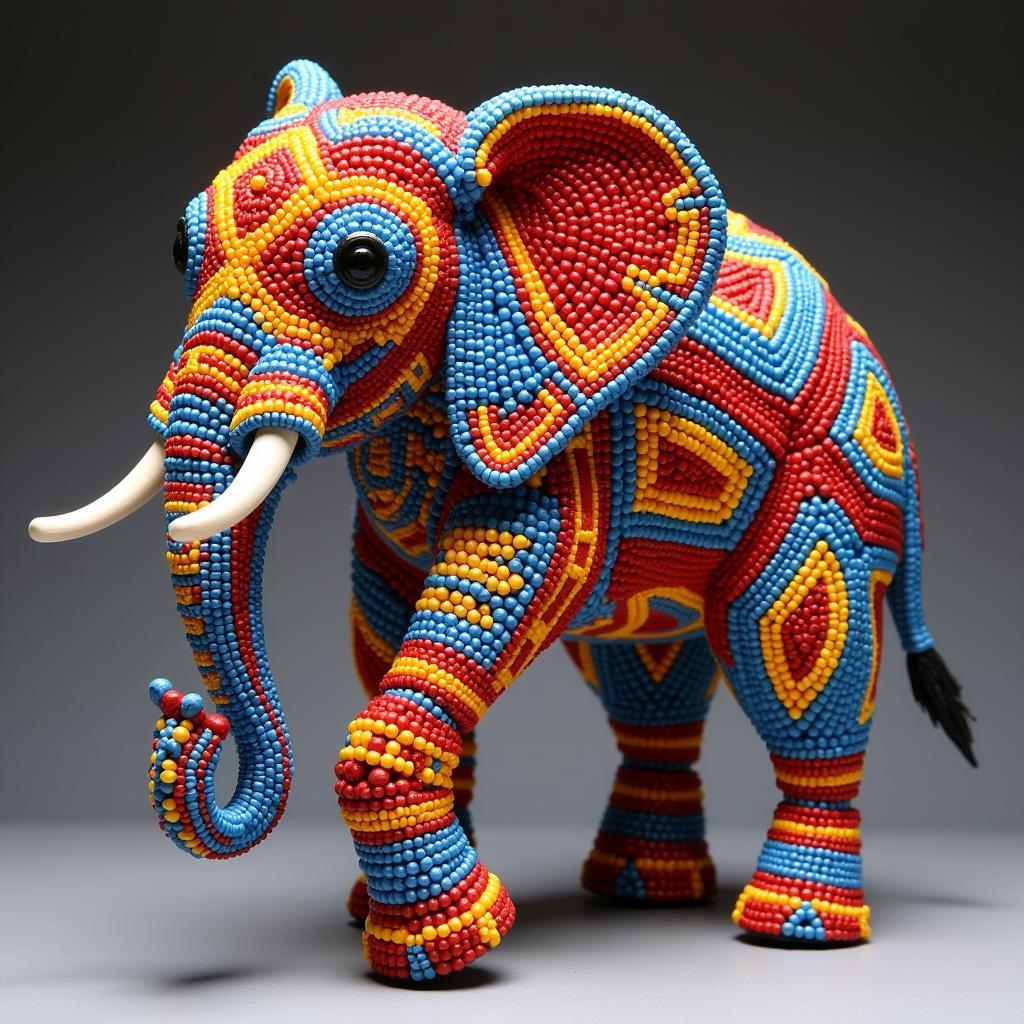 Maasai Beaded Elephant Figurine
Maasai Beaded Elephant Figurine
These are just a few examples of the diverse materials and techniques employed by African artisans, each piece a unique testament to the creativity and skill passed down through generations.
African Elephant Figurines: More Than Meets the Eye
While their aesthetic appeal is undeniable, African elephant figurines carry a deeper significance. They are more than just decorative items; they are:
- Storytellers: Each figurine often embodies a story, myth, or belief central to the culture from which it originates. They offer a glimpse into the rich oral traditions and folklore of Africa.
- Symbols of Hope: In a continent facing challenges like habitat loss and poaching, elephant figurines serve as poignant reminders of the need to protect these magnificent creatures and their environment.
- Connections to Heritage: For many people of African descent, these figurines are tangible links to their ancestral heritage,evoking a sense of pride, identity, and belonging.
Choosing Your African Elephant Figurine: A Guide
Navigating the world of African elephant figurines can be exciting, but it’s helpful to have some guidance. Here are some things to consider:
- Authenticity: Seek out figurines crafted by authentic African artisans to ensure you’re supporting ethical practices and preserving cultural heritage. Look for fair trade certifications or purchase from reputable dealers specializing in African art.
- Material and Style: Consider your personal preferences and the existing décor in your home. Do you prefer the rustic charm of wood, the sleekness of bronze, or the vibrancy of beadwork?
- Size and Detail: Figurines come in a range of sizes, from miniature collectibles to larger statement pieces. Decide what best suits your space and the level of detail you find appealing.
[african carvings]
Whether you’re drawn to the spiritual symbolism, the artistic craftsmanship, or simply the majestic presence of the African elephant, an elephant figurine can be a meaningful addition to your home. It’s a conversation starter, a cultural artifact, and a reminder of the enduring bond between humanity and the natural world.
FAQs about African Elephant Figurines
1. Where can I buy authentic African elephant figurines?
Reputable online marketplaces, fair trade retailers, and specialized African art galleries are great places to start. You can also find authentic pieces while traveling in Africa, directly supporting local artisans.
2. How can I tell if an African elephant figurine is authentic?
Look for signs of hand-crafting, such as slight imperfections or variations in the carving or beadwork. Research the artist or region the figurine is attributed to. Reputable sellers will provide information about the origin and authenticity of their pieces.
3. How do I care for my African elephant figurine?
The care required depends on the material. Dust wooden figurines gently with a soft cloth. Bronze and brass can be cleaned with a damp cloth and polished with a soft, dry cloth. Avoid using harsh chemicals or abrasive cleaners on any type of figurine.
4. What is the significance of the elephant’s trunk position in figurines?
The trunk’s position often carries symbolic meaning. A raised trunk is generally associated with good luck, prosperity, and victory. A downward-facing trunk can symbolize longevity or grounding. However, interpretations can vary between cultures.
5. Are African elephant figurines considered good luck?
In many African cultures, elephants are seen as symbols of good fortune, wisdom, and protection. Therefore, their figurines are often associated with positive energy and good luck.
Exploring Further:
- Discover the beauty of [African American wall decor] and how it can bring cultural richness to your home.
- Delve into the world of [African carvings] and appreciate the intricate craftsmanship of these unique pieces.
For any questions or assistance, please feel free to contact us at:
- Phone Number: +255768904061
- Email: kaka.mag@gmail.com
- Address: Mbarali DC Mawindi, Kangaga, Tanzania.
Our dedicated customer support team is available 24/7 to assist you.
